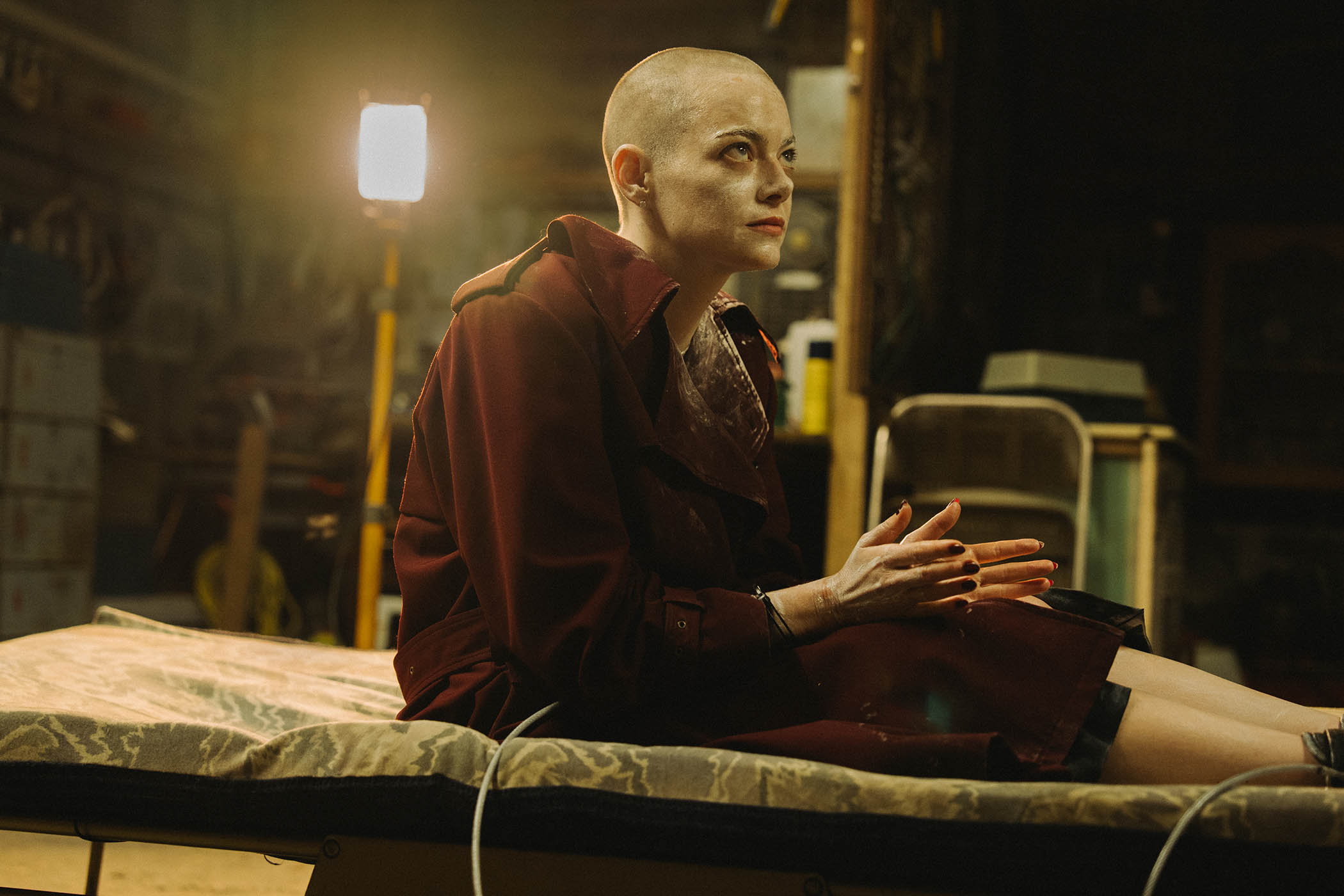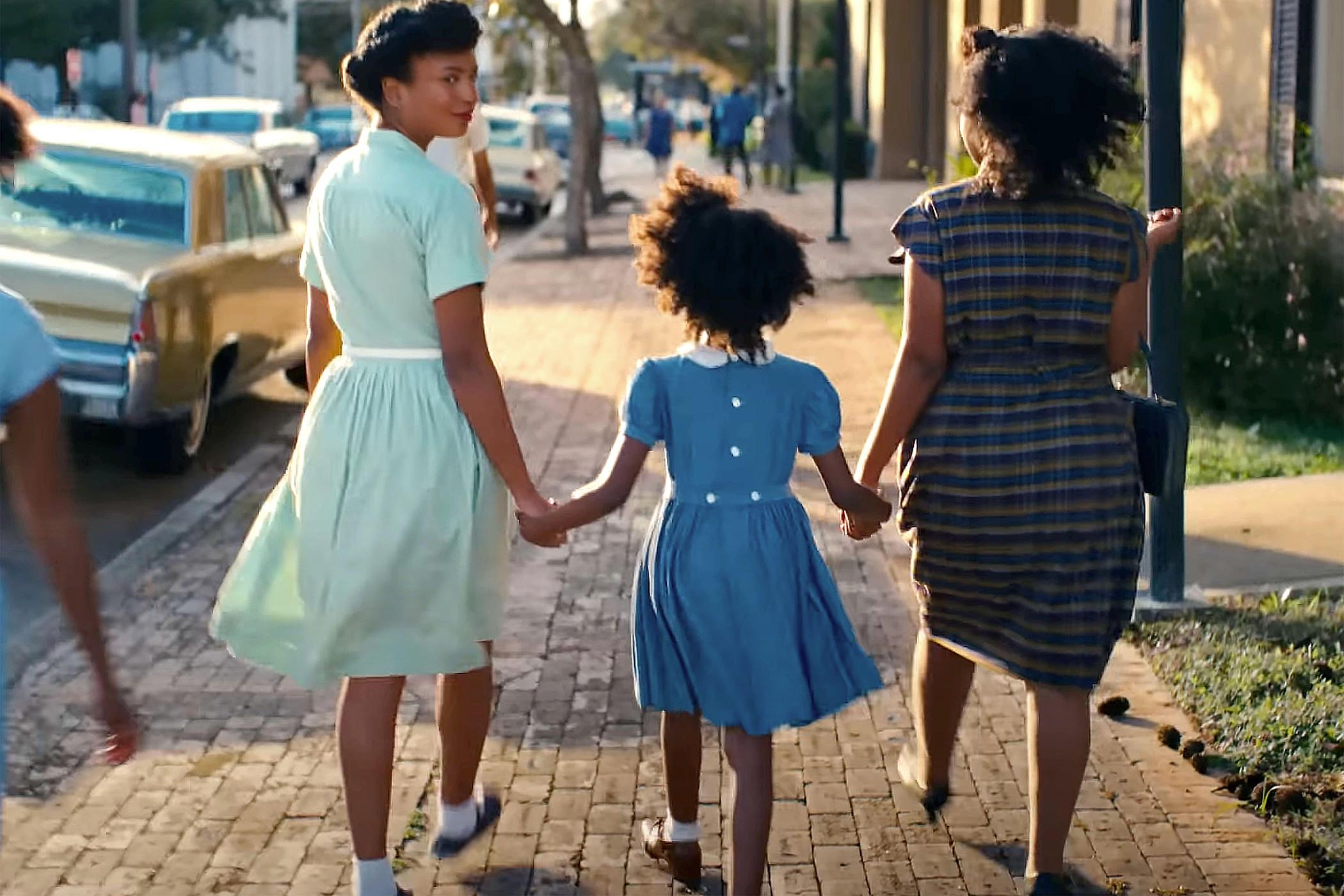Even by the standards of a Yorgos Lanthimos film, Bugonia is an unhinged and savage piece of storytelling. Ever since his breakthrough in 2009 with the Greek “weird wave” hit Dogtooth, the director has found a rich seam of inspiration in characters who have untethered themselves from reality and accepted behavioural norms. Bugonia takes this theme and runs with it.
A pair of disenfranchised conspiracy nuts, Teddy and Don (played by Jesse Plemons and newcomer Aidan Delbis respectively), kidnap Michelle (Emma Stone), the high-powered female chief executive of a pharmaceuticals company, in the belief that she is an alien intent on destroying humanity. Lanthimos reins in the undisciplined, sprawling storytelling of his previous film, Kinds of Kindness, in favour of a focused brutality, as the battle of wits between wily Michelle and Teddy, the overheated brains behind her abduction, escalates to a bloody standoff. It’s deranged, extreme and explosively enjoyable.
The story feels both deliriously preposterous and uncomfortably of the moment. Like Eddington by Ari Aster (who serves as a producer on this film and who brought the screenplay to Lanthimos), it’s a tale swimming with the kind of crackpot delusions that have evolved from stewing social divisions and the festering corners of the internet, where conspiracies proliferate like black mould.
But although it seems timely, Bugonia is in fact a remake of Save the Green Planet!, a cult Korean comedy sci-fi from 2003 by Jang Joon-hwan. Screenwriter Will Tracy (whose credits include Succession and the fine-dining class satire The Menu) tones down some of the quirky eccentricity of the Korean original: the characters might be demented, but Bugonia is a crueller, funnier, sharper proposition, more grounded and gritty than the wigged-out weirdness of the film on which it is based.
Along with a different tone, Tracy gives the movie its new title: Bugonia refers to an ancient Greek myth in which bees were thought to spontaneously generate from the carcass of a cow. It taps into one of the film’s key themes: rebirth or regeneration after destruction. And it also nods to apiarist Teddy’s obsession with saving the bees from what he believes is a malign extraterrestrial plot that will lead to their extinction, along with that of the human race.
Related articles:
With her huge bug eyes and frosty smile, you could believe Michelle would destroy swathes of humanity if she thought it might improve her profit margin
As Teddy, Plemons seems like a man who is fighting a losing battle on multiple fronts. He is defeated by personal hygiene: his stringy hair, pulled back into a scrappy ponytail, looks as if it has been basted in lard. He has the pink, moist eyes and flushed cheeks of someone whose emotions could overwhelm him at any moment. He’s a man who has been dealt more than his fair share of hardship – the screenplay drip-feeds hints of personal tragedy and childhood trauma.
Perhaps it’s no wonder that someone who has been comprehensively failed by the authority figures in his life might look for answers in unorthodox places. Teddy, forever online, has done his own research, teasing out a tangle of Reddit threads and echo chambers to learn “the truth” about the Earth’s alien overlords, the Andromedans. Teddy’s cousin and only friend, Don (a lovely, gentle performance from Delbis, who is on the autism spectrum), has his doubts, but as long as he gets to hang out with Teddy, he’ll go along for the ride.
Even shackled, with her head shaved (Teddy believes that Andromedans can communicate through antennae disguised as hair) and covered in a thick layer of antihistamine cream (to disrupt her psychic powers), Michelle is a formidable intellectual opponent.
In her fourth feature film collaboration with Lanthimos, Stone is terrific. Michelle is calculating and entirely devoid of empathy; she has huge bug eyes and a smile so frosty it looks as though it was carved from ice. She almost could be an alien. You certainly believe she would destroy swathes of humanity if she thought it might improve her quarterly profit margin. There’s a bleakness that builds as the action unfolds: the underlying question is whether humanity is even worth saving from whatever existential threat it faces. But this is mitigated (just about) by the movie’s absurdist humour.
Much of the film unfolds in Teddy’s chintzy but neglected family home, and Lanthimos has a knack for juxtaposing the utterly banal backdrop against the outlandish swerves of the story. And in this, the score by Jerskin Fendrix provides the punchline, charging innocuous shots of dustbins or of Teddy on his push bike with hilariously overblown, operatic levels of drama.
Photograph by Atsushi Nishijima/Focus Features



